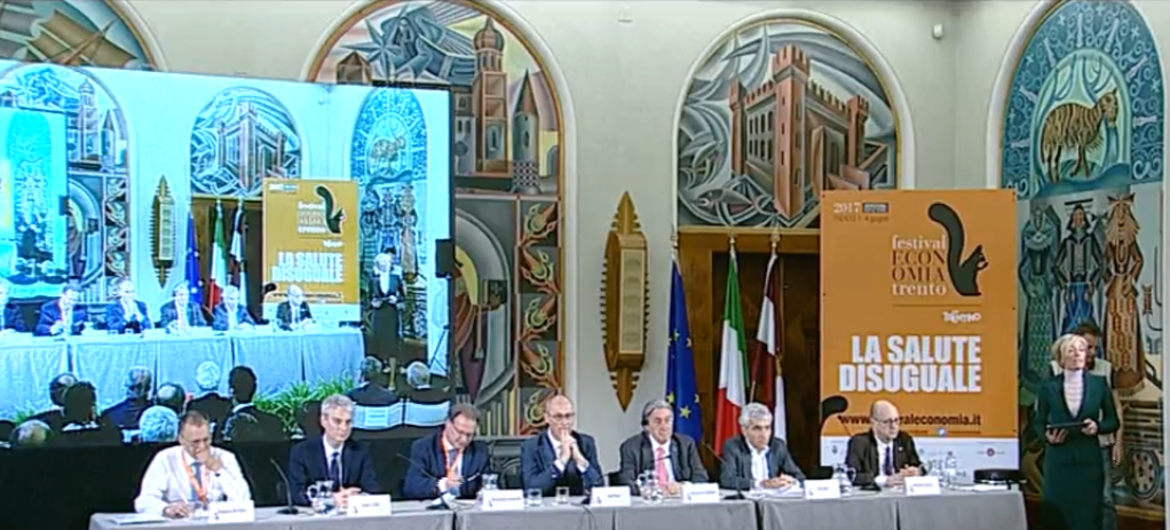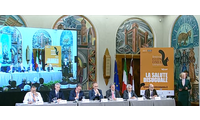
Alessandro Andreatta welcomed all guests of the Economics Festival by proudly announcing that Trento was fully booked. Mayor Andreatta also introduced Trento as “ the town of hospitality” and one of the most preferred cities for people to move to in Italy.
Ugo Rossi highlighted the importance of the Festival as a special occasion for Trentino,which is a small but ambitious territory, to be connected with the rest of the world. “Trentino is not afraid to discuss issues concerning healthcare, with our healthcare system having been proven to be sustainable, efficient and budget-friendly. Nevertheless, we are aware that everything is perfectable. We are ready to take in any new ideas that should arise from the four days of debate."
Innocenzo Cipolletta and Paolo Collini, on behalf of the University of Trento, discussed the role of education as it relates to health. “Health is such an interdisciplinary subject that involves a wide range of issues," explained Cipolletta, "other than medicine it includes economics, of course, law, security, privacy, biotech, ethics and so on. The worst mistake we can make is to consider healthcare as a cost”.
Gregorio De Felice, from a bankers point of view, agrees, adding: “In Italy the healthcare sector amounts to 149 billion euro (115 billion euro of which comes from the public sector and 34 billion euro from private sector)," argued De Felice, "and it amounts to 9% of the GDP. Healthcare has two important strengths: it cannot be moved abroad, which is different from most economic activities, and at the same time, it is extremely labour-intensive. Additionally, there is a sector within healthcare that can be still improved: prevention. To give you an idea, the per capita spending on prevention in Italy amounts to 98 euro, compared to 126 euro in Germany and 144 euro in Sweden."
Giuseppe Laterza, editorial partner of the Festival since its start, provided evidence of how one of the main missions of the present edition of the Festival is finding a proper way to reduce social inequalities. “There are indeed some disadvantaged social categories," described Laterza, "such as elderly people and the young unemployed population that cannot be left alone; they need our attention”.
Finally, Tito Boeri, remembering how much his double role as scientific director at the TEF and chairmain at INPS are so strongly interconnected, echoed Laterza's thought. “There is evidence supporting that a period of unemployment can strongly affect psychosocial integrity of jobless people," said Boeri, "and it represents an additional reason to reduce uncertainty in the labour market. At INPS, we have created a new tool that can help the regulation of temporary workers, with two main improvements: a minimum wage of 12 euro per hour (with a net value of 9 euro for the worker) and a trackable path for it."
Watch an interview with Tito Boeri on the impact of the Festival:
Web: http://2017.festivaleconomia.eu
Twitter: @economicsfest
Facebook: https://www.facebook.com/festivaleconomiatrento








